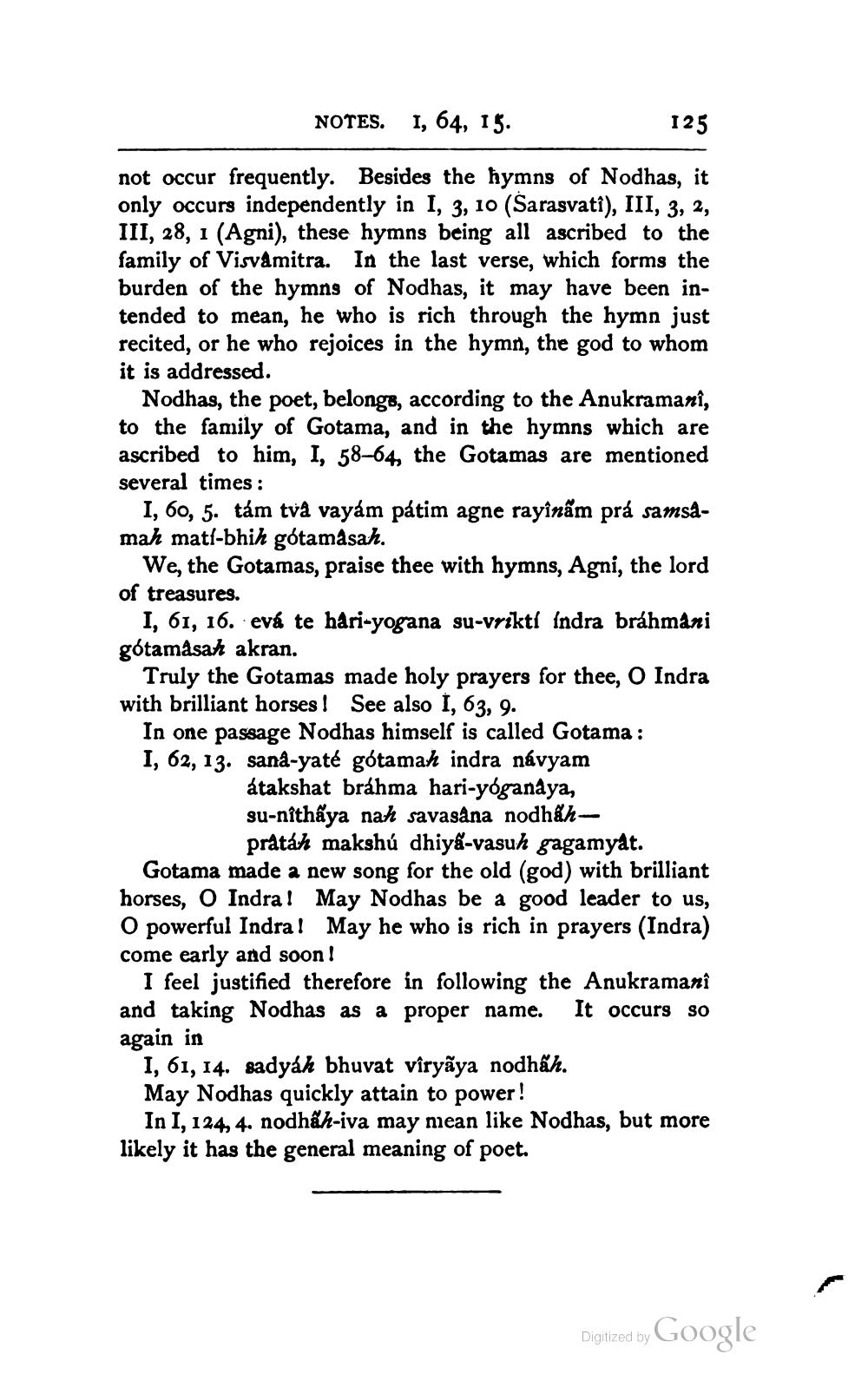________________
NOTES. I, 64, 15.
125
not occur frequently. Besides the hymns of Nodhas, it only occurs independently in 1, 3, 10 (Sarasvati), III, 3, 2, III, 28, 1 (Agni), these hymns being all ascribed to the family of Visvamitra. In the last verse, which forms the burden of the hymns of Nodhas, it may have been intended to mean, he who is rich through the hymn just recited, or he who rejoices in the hymn, the god to whom it is addressed.
Nodhas, the poet, belongs, according to the Anukramani, to the family of Gotama, and in the hymns which are ascribed to him, I, 58-64, the Gotamas are mentioned several times :
1, 60, 5. tám två vayám pátim agne rayînám prá samsamah mats-bhih gótamasah.
We, the Gotamas, praise thee with hymns, Agni, the lord of treasures.
I, 61, 16. evá te hari-yogana su-vrikti Indra brahmani gótamásah akran.
Truly the Gotamas made holy prayers for thee, O Indra with brilliant horses! See also I, 63, 9.
In one passage Nodhas himself is called Gotama : I, 62, 13. sana-yaté gótamah indra návyam
átakshat brahma hari-yóganaya, su-nîthấya nah savasana nodhåh
pratáh makshú dhiya-vasuh gagamyat. Gotama made a new song for the old (god) with brilliant horses, O Indra! May Nodhas be a good leader to us, O powerful Indra! May he who is rich in prayers (Indra) come early and soon!
I feel justified therefore in following the Anukramani and taking Nodhas as a proper name. It occurs so again in
I, 61, 14. sadyák bhuvat vîryāya nodhấh. May Nodhas quickly attain to power !
In I, 124, 4. nodhãh-iva may mean like Nodhas, but more likely it has the general meaning of poet.
Digitized by
Digitized by Google




